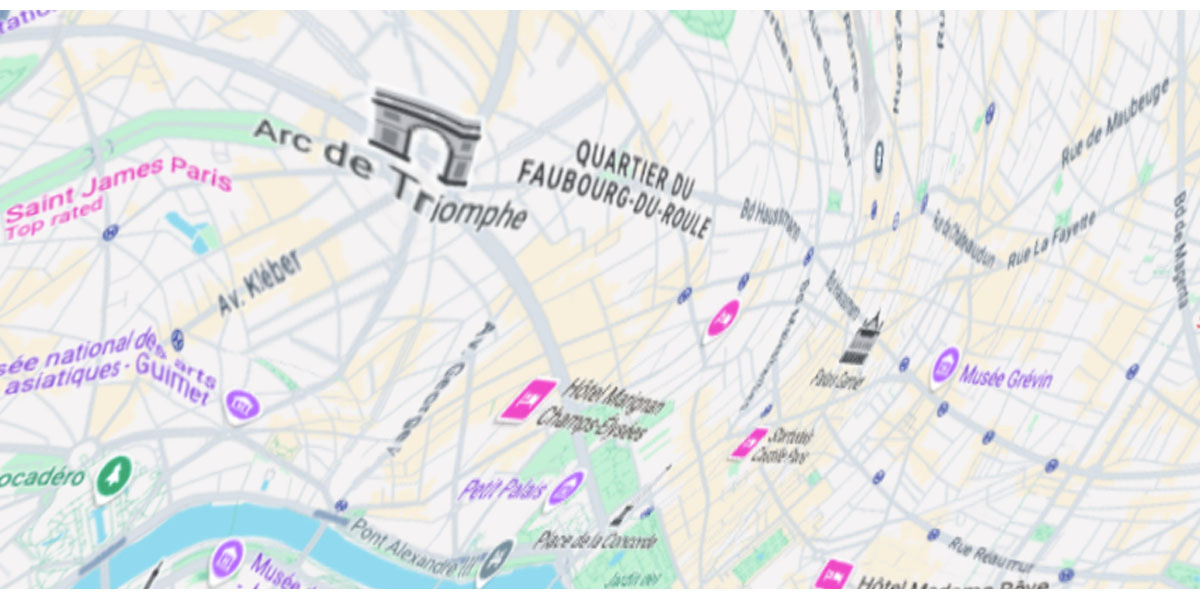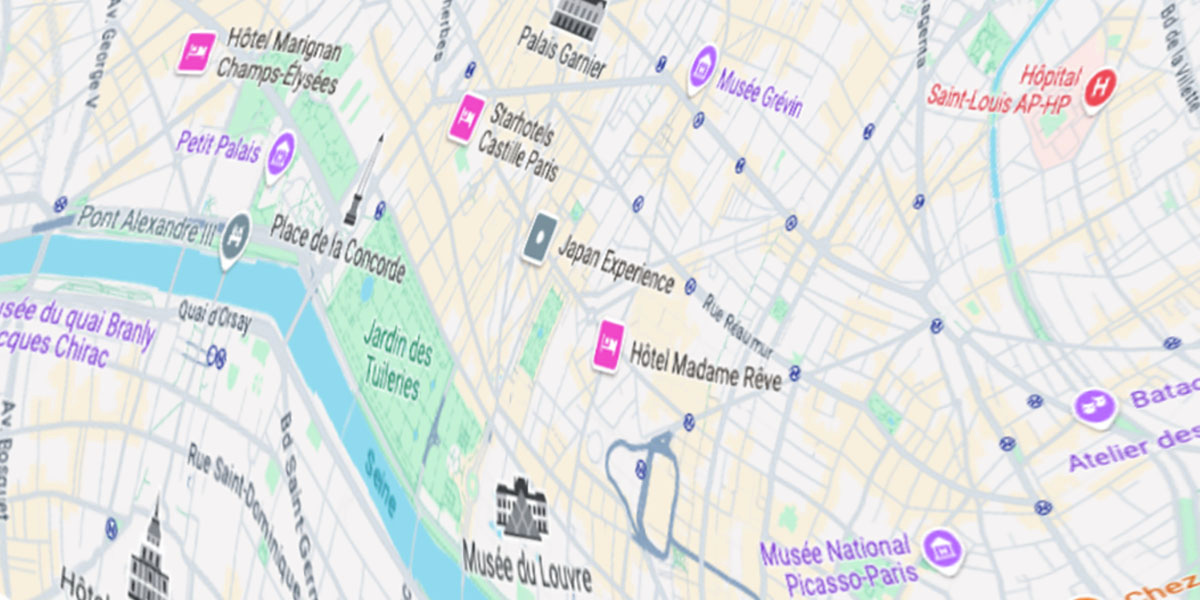We were on to our fourth shot when the talent noticed that it was missing. “Has anyone seen my bag?” he asked, riffling through a pile of belongings propped up on a chair. “It was about this big, crossbody,” he gestured.
“You definitely had it at lunch,” the stylist replied.
The talent was currently wearing a watch that looked perfectly proportioned on his wrist, but you knew would look like a Soviet-era Geiger counter hanging off anyone else. It was, of course, supplied by the fashion team as part of the shoot. The watch he’d arrived with was in the missing bag. But the talent was more concerned about the item that his father had given him, which was also in the bag. His father had died not long after, and the talent had kept the item with him at all times ever since.
As the production team scrambled to locate his belongings, I thought back to lunch. The talent was staying at this particular hotel in Paris, near the Champs-Élysées, and we’d decided to use it as a base, shooting on location in the nearby streets. He’d been in a buoyant mood and we’d quickly rattled through a couple of set ups before returning to the hotel for food.
The hotel’s restaurant was large, and it wasn’t especially busy. The attentive staff had pulled tables together for our crew, but there were few customers beyond our island. Which is probably what made the man stand out.
Stout with a beard, the man was not normally someone you’d notice. But at the time I thought it was odd that, amid a mostly empty room, he chose to sit so close to us. I remember a waiter enquiring if he wished to switch tables, but I assumed he told them that he was fine.
He didn’t hang around – not even long enough to finish his coffee. And he spent most of his time rummaging with his own bag, a large backpack, which he’d placed on the chair adjacent our own belongings. It was a non-event, but it had lodged in my mind, so I voiced my suspicions to the production team and they raised it with the hotel staff.
Sure enough, CCTV footage from earlier in the day showed that, while poking with his bag, the man seemed to slip something into it. They reported it to the police, but said they could do little else. The police in turn offered scant hope of obtaining the man and returning the stolen bag.
It was like a switch was flicked. The talent promised to carry on with the job, but as we wandered looking for likely backdrops, the disappointment showed. Where before he’d been giddily clambering brick walls and blithely grinning, his posture became limp and his smile was clearly a front. The photographer asked if the three scenes we’d already shot were enough. I felt like we could make do with what we had. I phoned the crew who had gone ahead to the next location and told them we were wrapping up. The talent went back to the hotel.
We were packing up our kit when one of the production team came up to me. They’d had a call from the talent. He was in a taxi outside the hotel. Evidentially, he hoped to pursue the man who had taken his bag and, because I’d seen him and might recognise him, he asked if I could come.
The producer told me that I didn’t have to go, and that their advice was not to go, but if I wanted to, I could. We had a couple of hours before our train back to London was due to leave. The producer said that I was free to meet them at the station.
I wasn’t sure what good I’d be to the talent, but with more out of intrigue than a sense of duty, I left the producer at the hotel and climbed into the talent’s car.
“Man, I really appreciate this,” the talent said. The shoot had been framed around a series of outfits or looks. The talent was still wearing the last look that we shot, which, as it happened, was billed as “celebrity undercover”. Although rather than espionage, this outfit was designed to showcase clothing. So underneath the three-quarter-length trench coat was a brightly patterned shirt and matching shorts, which popped against his dark skin. He’d taken off the sunglasses but still had the bucket hat perched on his head. And the Gucci slides weren’t going to be much use if we had to go far on foot.
The talent flashed his phone in front of me. Among the contents of the bag were his wireless earbuds, which were still tethered to it. It meant that he was able to trace the whereabouts of his bag – or at least the earbuds – on an app.
“But I’m not sure what the range is, so we have to be quick,” he said. He blurted a vague direction to the driver and the car pulled away.
The side road fed into one of the Champs-Élysées, but the traffic wasn’t too bad. However, the symbol on the map was moving, so we had to keep up. Realising that his garbled directions in English weren’t helping, the talent took a stop signal as an invitation to hand his phone over the driver’s shoulder. The driver fumbled it into his dashboard mount, casually dismissing the horn from the car behind as the light turned green.
Fairly soon, the manicured boulevards gave way to scruffier streets with drab, utilitarian buildings. The talent continued to bark directions from the backseat, but the driver seemed to be doing a good job of blocking him out. The car kept lurching forward, then abruptly turn, while bikes filtered past.
We edged closer to the icon on the screen.
“You should definitely pitch a movie about this,” I said. “You could play you.”
The talent grinned. “But who would be you?”
The car came to a halt. The driver indicated towards the building in front of us, passing the phone back to the talent. Holding it up, it showed that we were near. We thanked the driver and clambered out of the car.
The ground floor of the building was penned in behind a security fence and series or shrubs, with a further six or seven storeys set slightly back, reaching upwards. Circling the parameter, we dashed to what seemed to be the only opening. Someone had very recently arrived or left and the metal gate was swinging shut. I slammed my body against it, holding it open. The talent held one of his slides in his hand. It had fallen off on the sprint here.
Once inside, the Lutetian grey and chaotic crackle of the city were replaced by an unremarkable beige and an ambient hum. This must have been some form of municipal office. Disorientated and self-aware, we stumbled until we’d found the point that matched the location of the earbuds on the map. It was an empty corridor.
The talent looked at me and rested his finger perpendicular to his lips. With his other hand, he jabbed at the phone. If the earbuds were here, they should make a noise.
Nothing.
“It must be on another floor,” he said.
The concierge was the first person we’d encountered since entering the building. Unable to make much sense of our frantic spiel, despite the few random words in French that we managed to throw in, he finally sent us up a floor, where we found ourselves in a reception waiting room. Officials sat behind glass plates, tending to queries one by one.
I glanced over to my side. Noticing a ticket dispenser, I plucked a ticket.
Plonking ourselves down on two seats, we used our time to write down what we wanted to say to the staff, then ran it through Google Translate. So that, by the time it was our turn to be seen, we had a passage typed out for them to read.
Called up to the counter, the talent placed his phone against the glass. The woman on the other side looked puzzled, then leaned in and squinted. Having taken it in, she indicated that she’d be a moment and ushered over another colleague. First looking at her, then us, then the phone, the man pointed to a side door.
We shuffled over. The man rattled with some keys then opened the door. Carefully closing the hatch behind him, he held his hand out to inspect the phone again.
The talent flicked between our message and the tracking app.
“Ah,” the man said, “come with me.”
We followed the man, keeping an eye on the app. When we drew close to the icon again, I called out to the man. He glanced at the phone, then led us into the room.
The room was filled with mostly empty workstations, although we could hear murmurs behind partition walls. I looked at the talent and he prodded his phone again. We listened out, but again nothing.
We explained to the man that it wasn’t here, then pointed up. The man then took us out of the room and down the corridor to an elevator. Holding the door open for us, he squeezed in and ran his security card in front of a sensor and prodded the button.
The next level was a close replica of the last. A few people milled around their desks, with the general hum of work going on around us. We retraced our steps back to the same point on the map. Again, the earbuds made no sound.
The man patiently guided us from floor to floor, back to place, with no sign. As we worked our way up the building, I became increasingly aware of time slipping away. I checked my phone – I had a missed call and a text from the producer. The rest of the team were waiting at the station. If I was going to make my train home, I’d have to leave soon.
It was getting tight as we ascended to the top floor. I looked again at my phone.
“If you need to go, go,” the talent said.
I told him it was fine, I wanted to see this through.
We crept out of the elevator and along the hallway, with the man from the front desk trailing behind us. There was a prickle, a sense that this was it: this felt real. The man who had stolen the talent’s bag was here, on this floor. Only a few flimsy walls stood between us.
As we came closer to the icon on the map, the space seemed to empty of sound. We skirted close to the wall, listening out.
The door to the room was slightly ajar. The talent indicated to the hinge side and I took my post. Pausing, I took a breath. The talent nodded and we clattered our way in.
Inside, a man looked up from his desk. The man from the front desk followed behind us and seemed to apologise to his colleague. The talent took out his phone and jabbed the screen. I pricked up my ears and…
Nothing.
Disappointed, we apologised awkwardly in bad French, turned and shuffled out.
By this time, I really had to go.
“Good luck finding it,” I said.
“Good luck getting your train,” the talent said, grabbing my hand. He pulled me into his vast chest and wrapped his other arm around me. “And thanks for everything.”
“If you do turn this into a film,” I said, drawing away, “I think you need to work on the ending.”
This story first appeared in PAPERBOY magazine (and the ending wasn’t any better then)




I wonder what the ending should be? If we were to style it out…